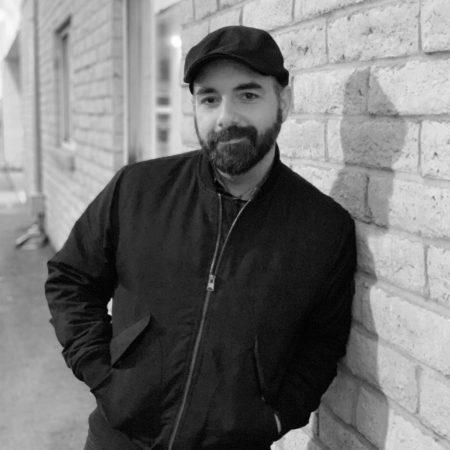I called him The Referee because he never wore a stitch of color.
Black jacket. Black slacks. White undershirt.
Once, he showed up in a black and white-striped sweater and that’s when the name really stuck. He sat in the corner of the bar and drank rum with orange slices, watching small town traffic through the window as if waiting for someone to join him—or making sure someone didn’t. He was friendly, and the regulars liked him. But there was also something sharp-edged and vaguely menacing in his voice, something reminiscent of a guillotine slipping loose.
“I’m a contract killer,” he said once, to great laughter. He unpocketed a silver money clip and bought a round for the bar—maybe six or seven drinks—all while playing up the joke. “Our union is striking, so there’s nothing to do but sit around daydreaming of murder.”
“We know plenty of deserving assholes if you’re looking to pick up work on the side,” I told him, and that part wasn’t a joke—in this dying town, layoffs and evictions came fast and by the dozen. Malicious thinking had become a popular local pastime, and as the owner of the bar, I heard every idle threat.
“I’m not a scab,” he said. “But I always appreciate a referral.”
“And I’d never cross a picket line,” I joked.
He told us his name was Larry or Gary Vander-something, but it sounded all wrong, like a name you made up in a hurry. That’s when we started calling him “The Ref” to his face, and he didn’t seem to mind.
In fact, the hitman bit really took off. When Len Jenson’s landlord tossed him out on the street, we said it was time to call the Ref. And when Roger Kuskie caught his wife fucking the neighbor in the tool shed, we joked about starting a collection so we could send in the Ref.
It wasn’t long before I set up an old water jug at the end of the bar called the Murder Jug, and we’d pass it around any time someone had a new revenge fantasy. It was popular with the regulars, and it quickly became one of those kitschy dive bar gimmicks like dollar bills on the ceiling or trucker hats pinned to the walls. The Murder Jug swelled with cash, and soon I had to lock it in the office after last call for safekeeping.
Just before the holidays, I got bad news of my own.
The County Health Inspector had given me thirty days to remodel the kitchen and install new appliances or he’d shut me down. The estimate was thirty grand, an impossible expense—even with all that money in the jug.
The bar was doomed.
We cursed the Inspector with every pass of the Murder Jug and with every bill we shoved down the little glass neck. The Inspector’s name became a mantra of death.
The Ref watched intently from his place by the window.
“Just a little extra,” he’d say with a laugh, “and I’ll make it look like a suicide.”
On the day I shut down, I spotted an unfamiliar Honda parked behind the bar. I didn’t think much of it, but then I saw the front door hanging crooked in the jamb, glass littering the linoleum floor.
Inside was a gray-haired figure slumped over the bar.
I flicked on the light and knew: the Health Inspector.
His head lay in a pond of blood, a shiny big-bore revolver at his side and a handwritten note clenched in his left hand. I looked closer and regretted it. The fatal round had ruined his face—left eye dangling wetly onto the bar like a pickled onion on a string.
I ran to the office and locked the door. It took me three tries to dial 911. The call was going through when I noticed the Murder Jug was empty, and inside sat a little toy referee blowing a whistle.
The dispatcher answered, prattling in my ear.
I turned the jug over and the toy referee slid onto the floor.
My god, we hired him on fucking layaway, I thought.
I hoped it wasn’t out loud.


